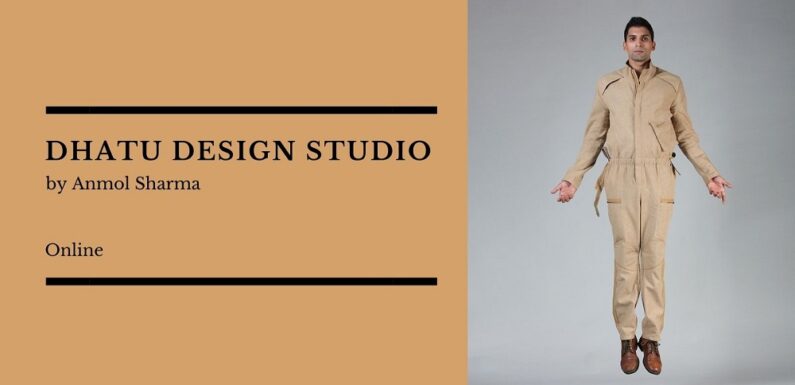
Sustainable fashion label Dhatu Design Studio is known for its contemporary and ethnic wear clothing designed for durability & longevity in natural, hand-woven, and upcycled textiles. Label’s ethos “Dress to Reform” states that the products serve a purpose throughout its life. Dhatu has a wide range of menswear including shirts, kurtas, jackets, trousers and more.
In a small talk with KahaJaun, Label Dhatu Design Studio’s founder, Anmol Sharma gave more information about the label.
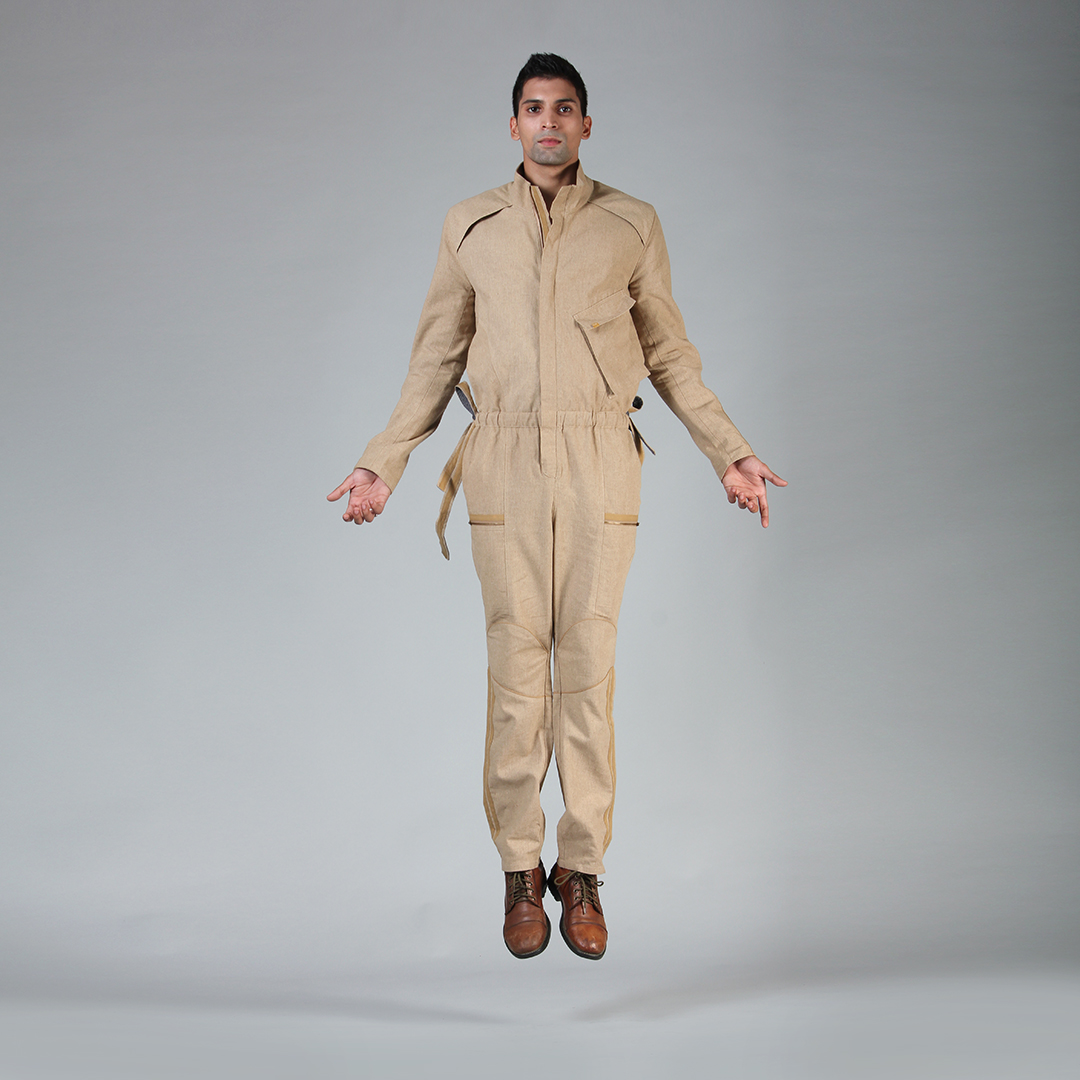
How would you describe your Label Dhatu Design Studio?
It’s about awareness and responsibility.
Upon realizing that I need to be part of the solution, the road was unidirectional. I quit all that I was doing so far, press the reboot button, and started preparing myself mentally and physically to take on the challenge.
In the process, I devoted myself to focused research on sustainable fashion and was amazed to see the various initiatives worldwide. With time, the perception grew and I started to put together a roadmap towards the conscious world of fashion. It took a couple of years, but the vision finally came, “DRESS TO REFORM” and Dhātu Design Studio was born.
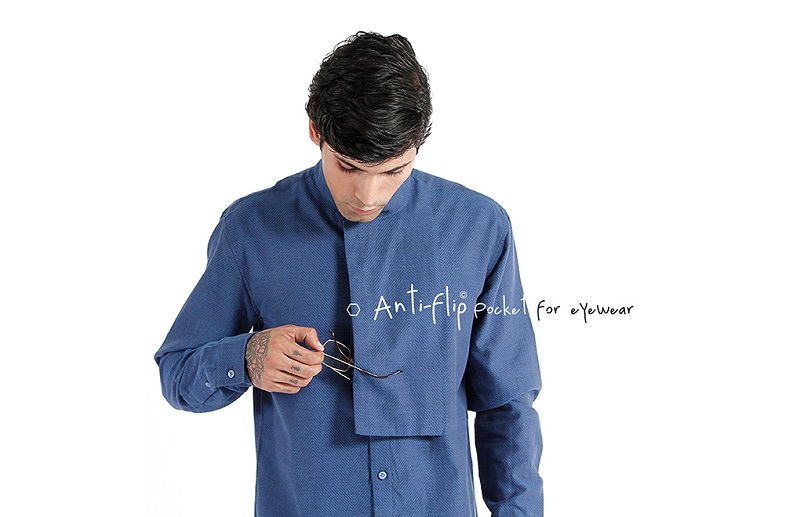
Concept “Dress to Reform” states that the products serve a purpose throughout its life, sourcing fabric from handloom weavers help support the traditional Indian culture of weaving, the problem solving utilitarian styling design details keeps it sharp, natural fabrics keep the wearer at ease and provides comfort, and at the end of life these materials are recyclable, compost friendly, and biodegradable. Quite simply taking from the earth and putting it back there, purpose-driven fashion to reduce the impact on the environment.
Information is the key, research and development would be the direction. It’s one thing to make a product look good but we must focus on the multi-dimensional aspects related to it. Creation needs to be purpose-driven and not just a feed for the already unchecked consumption. The solutions are there today and its high time that we figure them out.
Which type of audience/shoppers should definitely visit the label Dhatu Design Studio?
As quoted by Gautama the Buddha “ Change yourself, change the world”
Instead of falling into the trap of the commercial magnetism people must rethink and develop their own values, they have the power to become the change. Aware and confident people who what to become the part of the solution would definitely go for Dhatu’ as we are a conscious fashion label that creates low impact garments.
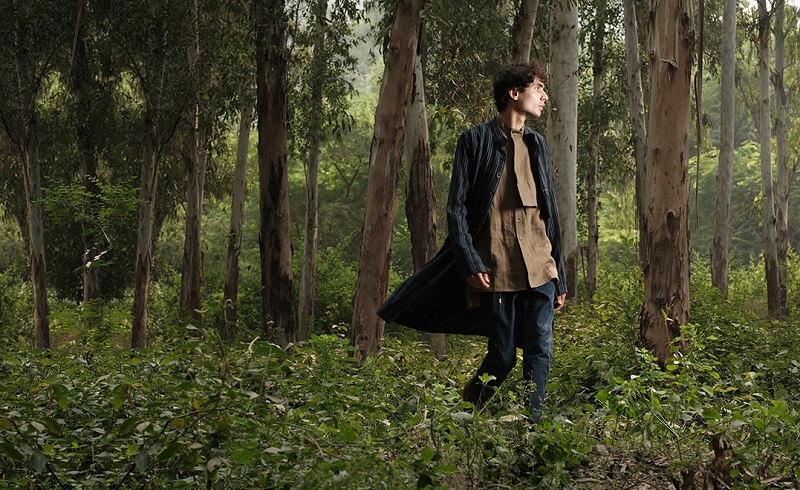
What type of Collection do you have at label Dhatu?
Implementing a self-compiled RSL (Restrictive substance list) we have chosen to forego animal products and all traditionally followed industry practices that have a higher carbon footprint. We do not use any fabric that is produced by harming the environment for example Polyester & Nylon (synthetics) being produced form crude oil or MMCs such as Viscose & Modal produced from the trees, leading to deforestation and habitat loss. Customers generally do not get into the detail of fabric production; it is our responsibility as designers to choose the right material, to begin with.
We have two lines Ready to Wear and Made to Order.
RTW comprises of contemporary clothing for everyday use. These come in various fit options to suit all body types and are adorned with simple yet significant details. The price range is kept at the lower side for a wider acceptance of the masses.
Whereas MTO collections are the runway looks, created in rich handloom fabrics and attention to details.
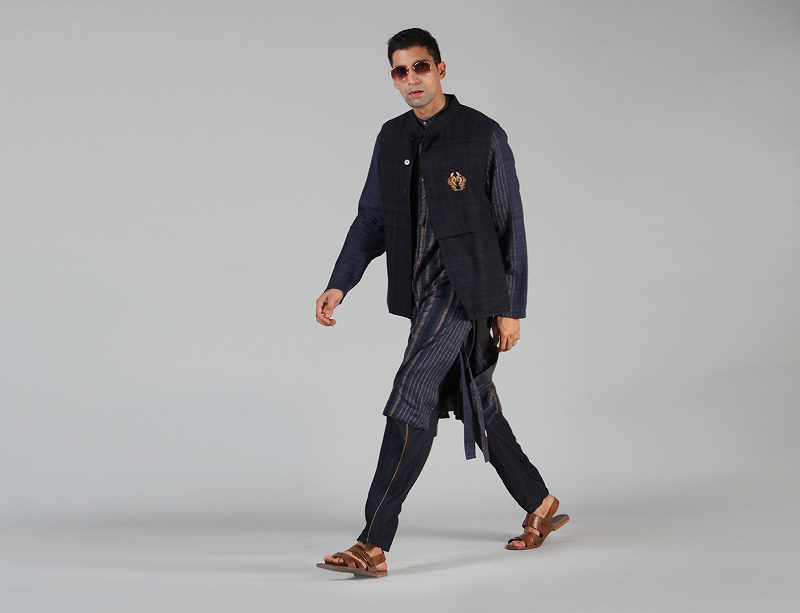
What is the price range of your designer outfits?
Ready to Wear Collection: 1850 – 7500
Made to Order Collection: 4500 – 42000
What type of ambiance you have created at the Dhatu Design Studio?
Our store at Shahpur Jat, New Delhi is currently on stand while we have transferred the entire operation online.
We strive to create a sustainable work culture at our manufacturing unit in Gurgaon this includes practices like fair trade labour, Gender equality and ethical sourcing to count a few.
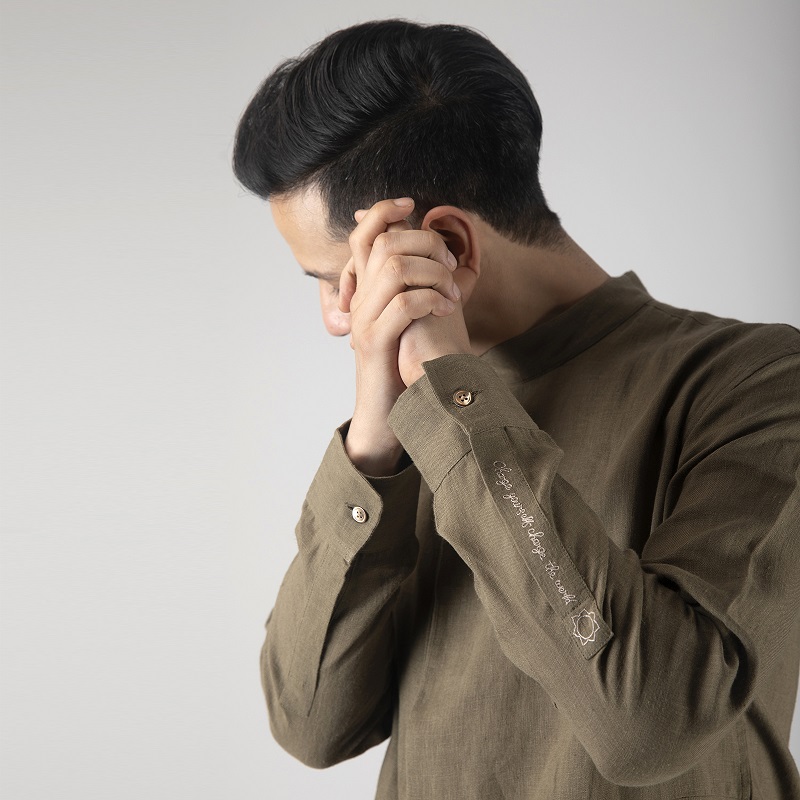
How did you end up being a designer?
Born in an engineers house in Kanpur, Uttar Pradesh, India I had the privilege of spending my childhood in a lush green neighbourhood. This was an officers colony in the middle of the town. I had a weird set of friends, a few kids from the rural families who have been staying in their mud houses within the parameter before the area was colonized.
We used to spend a great deal of time sitting on the branches of trees, playing with cattle, flying kits, and most importantly working on many many creative projects.
We were just a bunch of 8-year-olds who started making a bamboo effigy of the mythical figure Ravana for the upcoming Dussehra festival. In north India, during this festival, huge effigies of Ravana are made by teams of professional bamboo craftsmen, these can go up to 100 feet tall and are then set to fire to demonstrate the win of good over the evil. We use to go and watch them work and come back to my backyard to implement the days learning. No one was even aware until the model was up for display on a festive day. It was just 8 feet tall and we were just 4. For the next 3 years we did the same but the height of the model reached up to 30 feet, we had to call grownups to help us assemble the parts together.
This is how I spent time at home and in school only 2 things got my attention sports and art room. Here I represented my school many times in various art competitions and was fortunate to be recognized as the creative of the year for 3 consecutive years.
So to sum it up, having accuired logical skills form father and a hell-bent inclination towards art and crafts, when it was time to pick my college for professional studies NIFT was an obvious choice.
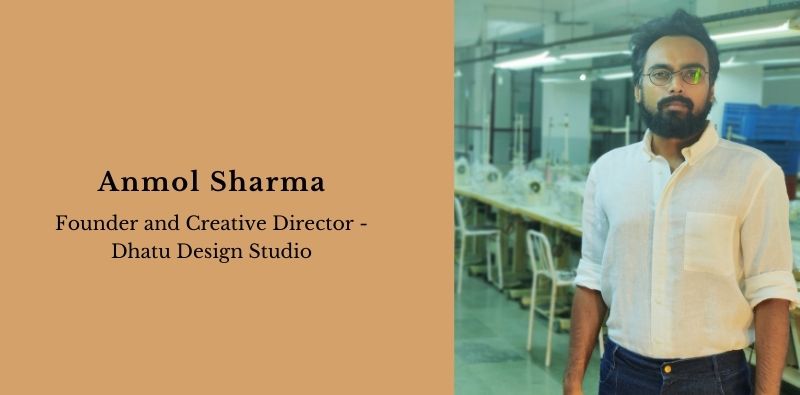
What is the favorite part of being a fashion designer?
Implementation of one’s learning to find the solutions is of utmost importance to me.
Being in the creative industry is stressful but it comes with its own fruits.
An eye for detail is an advantage that helps me with my work as well as day-to-day functions. My favorite part is being able to recognize the problems and solve them through design application.
For example our “Anti-flip” Pocket for eyewear is a handy detail for people with glasses.
OR
Majority of our collections are created from authentic Indian Handloom fabrics to create livelihood for the weaver families.
Which designers have been the biggest influences on you?
Sure, I admire a lot of designers and their passion.
If I absolutely have to pick a name or two it would be Manish Arora in Indian designer and Lee Alexander McQueen of England for their flamboyance and Issey Miyake from Japan for his effortless technical strength.
What aspects of the fashion industry would you like to change?
This is a great question as when I started my own label back in 2015 it was like walking on the crossroads with a little idea of which way to go.
Since then it has been learning through every single step we take.
The experience that I gained and my research work of last few years have definitely shown me the light.
There are many possible routes towards sustainable and conscious fashion practices for both the creators and the customers. We take care of the former; I am greatly interested in working closely with the later to spread awareness.
I would like to change the customer behavior towards fashion. As demand creates supply, it is essential that the consumers become more aware regarding the impacts of their buying decisions, “ Buy less, buy consciously”.
Investing thoughtfully in fashion can not only help them develop their own style but also can generate livelihood and reduce the unnecessary stress on our planet.
For example wearing clothing made from natural fabrics would keep the wearer in ease especially considering the Indian weather condition, it will help lower the demand for synthetic materials thus countering the ecological damage caused by fast fashion and moreover will provide jobs to the heritage handloom weavers.
I would request every on to implement these few practices in their daily life, because every step counts.
Stop throughway culture instead donate your used clothing.
Avoid use of synthetic and mixed fabrics.
Try to become quality based instead of quantity.
Love and take care of your garments to increase its longevity.
Understand the human value of making things, handmade.
Avoid single use plastic in all fields of life.
Support local businesses.
Implement research before buying, buy less buy consciously.
How can users know more about your label?
Address: Currently all operations are online, physical store on standby.
Contact Email ID: [email protected]
Website: www.dhatudesignstudio.com
Instagram: www.instagram.com/dhatu_design_studio
Facebook: www.facebook.com/dhatudesignstudio
Best Designer Stores and Boutiques in Delhi NCR

